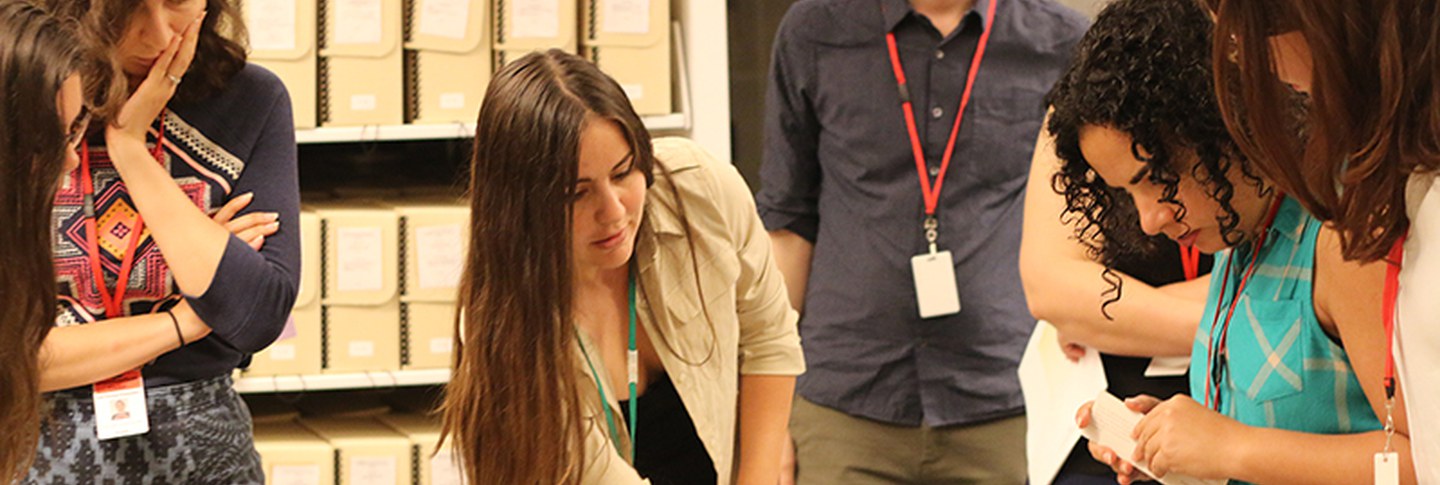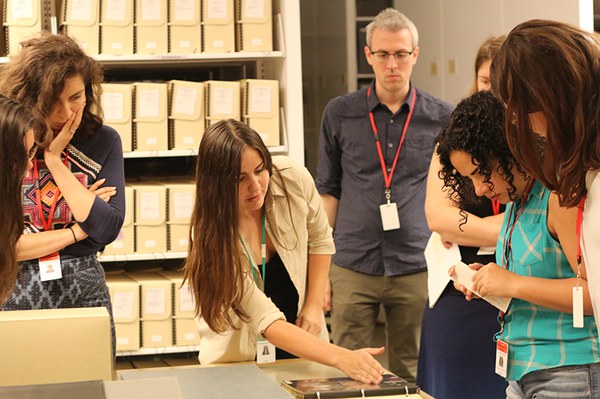The ten students who comprise the inaugural session of the Syriac Summer School descended on Dumbarton Oaks from July 21 to 24 for a long weekend exploring the scholarly resources of the institution as well as the city of Washington, D.C. The program, sponsored and funded by Dumbarton Oaks, is hosted at the Hill Museum and Manuscript Library (HMML), located on the campus of Saint John’s University in Collegeville, Minnesota. At Dumbarton Oaks, students explored the Byzantine collections and the gardens, attended sessions on coins, seals, and bibliographic resources, learned about the Dumbarton Oaks Medieval Library, and met with staff and scholars.
“We had a very difficult time choosing from among the applicants to the summer school,” admits Scott Johnson, professor of classics at the University of Oklahoma, who teaches Syriac at the summer school. “The two primary criteria we used were that the students chosen could not get Syriac at their home institutions, and that they were starting from scratch. We wanted to offer Syriac to students hungry for it who would not be able to add it to their repertoire otherwise.”
The Syriac Summer School began when Jan Ziolkowski, director of Dumbarton Oaks, contacted Father Columba Stewart, director of HMML, to propose an intensive summer course on Syriac modeled on Dumbarton Oaks’ Byzantine Greek Summer School. The new program includes instruction in the Syriac language, taught by Johnson, as well as Syriac paleography and manuscript study, taught by Adam McCollum, formerly HMML’s lead cataloger of manuscripts. The summer school’s visit to Dumbarton Oaks highlights important connections between Syriac and Byzantine Greek and their respective literatures. “Greek and Syriac have a close historical relationship through late antiquity,” explains Johnson. “Many Greek texts were translated into Syriac, and Syriac texts were likewise sought out by Greek speakers. Syriac scholars were responsible for preserving and translating ancient Greek texts.”
The students’ backgrounds range from classics and medieval studies to liturgical studies and classical Arabic. In the past, Syriac was often housed apart from Greek—the former grouped with Middle Eastern languages, the latter in classics departments. Yet the insights that Syriac affords into late antique, Byzantine, and Islamic research have become increasingly apparent to specialists in those areas in recent years. Consequently, the Dumbarton Oaks Library has been actively acquiring Syriac resources so that scholars of Syriac and other eastern Christian cultures have more opportunities to conduct research at Dumbarton Oaks. “I think the motivation for bringing the students to Dumbarton Oaks is to show them the resources Dumbarton Oaks can offer Syriacists,” says Johnson. “I hope that their visit will broaden the horizons of late antique, Byzantine, and medieval studies and further contribute to the exciting conversation about where these fields are going.”

